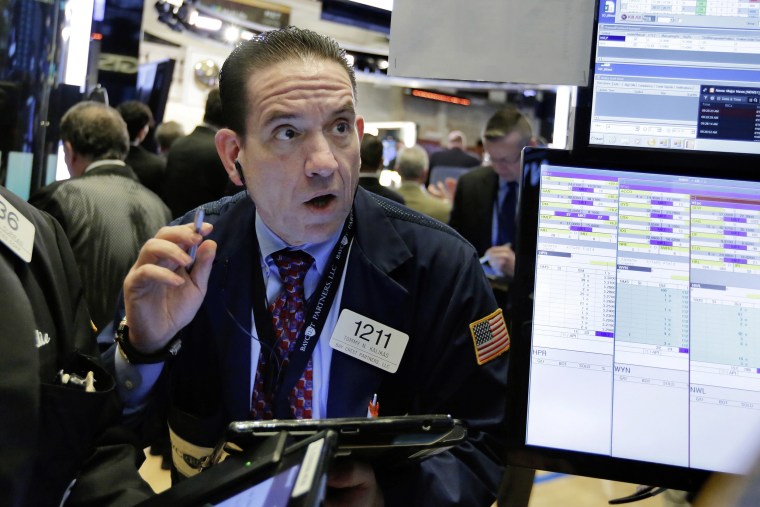Capping weeks of volatility, the market ended the quarter with a whimper as concerns about privacy issues and regulatory scrutiny in the tech sector weighed on the broader market. (Markets are closed today for Good Friday.)
“Any time there is an erosion of trust in a sector, it will have a ripple effect across the sector,” said Nigel Fenwick, vice president and principal analyst at Forrester Research.
Bad press and bad-mouthing from politicians isn’t helping, analysts say. “We have very visible public figures saying, ‘delete Facebook,’ [and] Amazon is now under attack from President Donald Trump,” said Dan North, chief economist at Euler Hermes North America. “The implicit threat is they might suddenly come under strict regulation, which is antithetical to disruptive technology.”
Facebook’s data privacy scandal with Cambridge Analytica has generated some concern that U.S. regulators could increase oversight of social media, and the breach also spotlights the E.U.’s sweeping data-privacy General Data Protection Regulation that goes into effect May 25.
“These kinds of instances are going to put the privacy situation on the front burner,” said Scott Wren, senior global equity strategist at the Wells Fargo Investment Institute.
“The slump is there because investors think there’s a little more underlying this data privacy issue,” said R “Ray” Wang, principal analyst and CEO of Constellation Research. In addition to privacy concerns, Wang said analysts are looking to tech companies to increase their transparency and not to set in motion any events that can’t be reeled back in if things go awry.
“The original folks building these really thought they were doing things for good,” Wang said, but events like the Facebook privacy breach and others have forced fast-moving tech disruptors to slow down and consider potential unintended consequence, he said. “The reality is, for every technology we build, we have to think about the counter-effects.”
Analysts say another key reason the tech sector’s slump had a ripple effect on the broader market is that these companies have contributed an outsized share of the recent market runup.
“FAANG names such as Facebook and Amazon have been the pillars of the strong tech run that stocks have made over the last nine years,” said Daniel Ives, chief strategy officer and head of technology research at GBH Insights. “These tech darlings have started to see the bloom come off the rose with regulation potentially on the horizon.”
In particular, the collective size of the so-called FAANG stocks (Facebook, Amazon, Apple, Netflix and Google) magnifies the effect of their influence in market cap-weighted indices, North pointed out.
Take the broad-based S&P 500 as an example, he said. “Those five account for 10 percent of all the market capitalization,” North said. “Just a handful of large stocks drive stock market returns. [When] they take a big hit, the index gets whacked, too.”
Unlike many of its counterparts in other industries, Silicon Valley firms don’t have to invest in big factories, heavy machinery or stockpiles of raw materials — this has its advantages, but it also means these tech companies won’t have a huge windfall from the recent tax cuts to cushion any slump in business. “Tech was one of the lowest taxed sectors out there,” even prior to tax reform, Wren said. “The tech sector, as a whole, isn’t seeing as much of a benefit from the new tax code.”
Analysts say the overall strength of the economy will keep tech volatility from doing more damage than it would otherwise, as corporations take advantage of more cash on hand thanks to those lower tax rates. “I don’t think it’s going to go past Q3,” Wang predicted.
In the near term, though, market experts predict that the FAANG stocks could continue to take investors on a bumpy ride. “The turbulence in the tech sector will continue as the pace of technology change accelerates,” Fenwick said.
